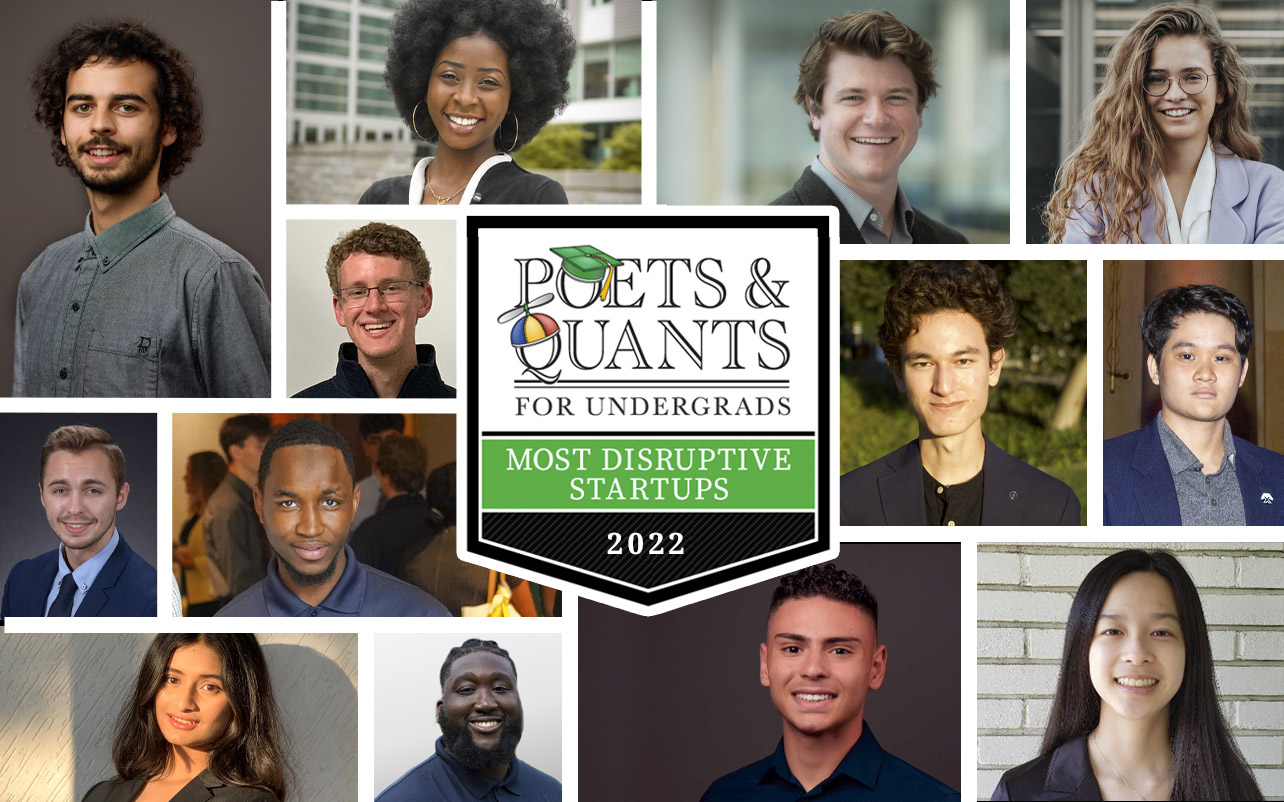
ANALYSIS OR ACTION?
Closer to home, many of this year’s founders credit faculty for their never-ending commitment and uncompromising candor. That spirit is epitomized by Doug Villhard. He helms the legendary “Hatchery” course at Washington University’s Olin School, where the mantra is seemingly ‘Research, research, research.’
“Doug is very big on feedback,” observes Clayton Canfield. “He taught us to obsess over our customer pain points. If we hadn’t spent three months focusing on customer pain points and doing dozens of customer interviews, we would have built something completely different, and it would not have worked.”
Andrew McMaster touts Regan Stevenson, who taught another regaled entrepreneurship course: Indiana University’s Spine Sweat Experience. Short on theory and heavy on one-on-coaching, Stevenson focused his students on taking action every single day to instill confidence, courage, and commitment.
“My biggest lesson was to DO more,” McMaster acknowledges. “Before taking this class, I had always thought like a corporate leader or a consultant. I’d spend a great deal of time planning and thinking, and then present the possibilities to the team and work together to build a course of action. This class showed me that being in a startup is agile for a reason. Fail fast, bootstrap solutions early, talk to more people, and do less planning, more doing.”
And schools get into the act too. At Cornell University’s Dyson School, Rumbidzai Mangwende opened EthosSphere, an ethnic beauty marketplace. Now a senior, Mangwende credits Dyson for everything from accessing grant funding to connecting with her with prospective investors. And that’s just the start, she adds. “The rich entrepreneurial and collaborative environment Dyson students create has made my progression, from a woman with a good idea into an actual entrepreneur, one of the most seamless that I can think of. am surrounded by mental upliftment and physical resources; from friends and faculty alike.”
A LOOK AHEAD

Rumbidzai Mangwende, Cornell University (Dyson)
Mangwende’s long-term goal? “Change the ethnic beauty market from brick-and-mortar to click-and-order.” Sure enough, her peers are equally ambitious. Aboubacar Barrie is already dreaming of a multi-dollar valuation with FORENAIRE, while Dhanashree Mandhani hopes to create employment opportunities for women and vulnerable populations. And Jhonatan Serrano plans to do good and do well with BOOST2GO. His vision: Become the world’s best energy drink while spurs economic development in the Ecuadorian Amazon.
Noah Sorin admits that he wants his Idori startup to change the world. While he doesn’t see his children’s books and stuffed animals revolutionizing the world by themselves, he does believe they could be part of something larger that’s emerging.
“I do believe that Idori could be the start of a real movement towards sustainability becoming a more integral part of early childhood education and developmental learning – and THAT is what could really change the world,” he writes. “My goal is not to sell a billion stuffed animals. My goal is to create a brand that truly stands for something: A brand that stands for the Earth, a brand that stands for the people, but most importantly a brand that seeks to bring the two back together as one. If my startup truly succeeds, then every child in the world will understand how their behaviors affect Mother Earth, and they will want to do everything in their power to protect it.”
MOST DISRUPTIVE BUSINESS SCHOOL STARTUPS OF 2022
| Startup | Business School | Founders | Industry |
|---|---|---|---|
| Idori | Boston University (Questrom) | Noah Sorin | Sustainability, Early Childhood Education |
| Savor | Boston University (Questrom) | Diran Shahrik | Sustainability |
| Gravity Platforms | University of California-Berkeley (Haas) | Kevin Gillespie and Jolene Huey | Social Media, Entertainment |
| EthosSphere | Cornell University (Dyson) | Rumbidzai Mangwende | Beauty, e-commerce |
| Blyss | Georgetown University (McDonough) | Stanford Maison, Hunter Hanley | Dating Services |
| FORENAIRE | Georgia Tech (Scheller) | Aboubacar Barrie | Clothing, Apparel, Fashion |
| Smart Estates | Georgia Tech (Scheller) | Sam Tsang-Chan, Nathanael Tappin | Real Estate |
| Prym Solutions (Salam Kisan) | University of Illinois (Gies) | Dhanashree Mandhani | Ag-Tech |
| Finniva Technologies | Indiana University (Kelley) | Andrew McMaster | B2B Software, PropTech |
| Beacon Book Box | University of Michigan (Ross) | Cameron Allen | E-commerce, Retail |
| Lovelace | University of Minnesota (Carlson) | Anna Pedrick | Education Tech |
| BOOST2GO | Northeastern University (D’Amore-McKim) | Jhonatan Serrano | Energy Beverage |
| Chameleon Foods | Notre Dame (Mendoza) | Sean Callaghan, Brian Gonzalo | Agricultural Technology |
| Ouéd Collections | New York University (Stern) | Mariam Ouedraogo | Modest Fashion |
| Drem | Santa Clara University (Leavey) | Darius Johnson, Luke Poltorak | Web3 |
| SteadiSpoon | Southern Methodist University (Cox) | Biomedical Devices | Raleigh Dewan |
| March | Texas Christian University (Neeley) | Payton Cranford, Jeremiah Johnson | Beauty Products, Consumer Goods |
| ChurchSearch | University of Texas (McCombs) | Trenton Balcombe | Religious Tech |
| DoorList | University of Virginia (McIntire) | David Roselle, Peter Layne | Mobile Applications, Event Management |
| Sobriety Hub | Washington University (Olin) | Clayton Canfield | Behavioral Health |
| ToxiSense | Wharton School | Aravind Krishnan, Udit Garg, Aarush Sahni, Andrew Diep-Tran | Biotech (Genetic Engineering/Synthetic Biology) |
DON’T MISS: THE MOST DISRUPTIVE BUSINESS SCHOOL STARTUPS OF 2021











Questions about this article? Email us or leave a comment below.